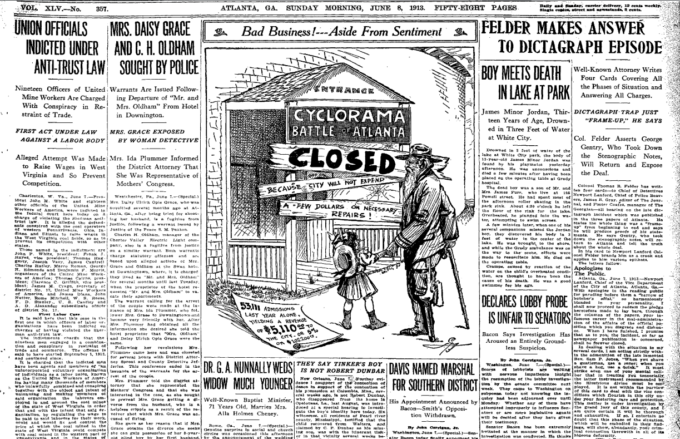 Another in our series of new transcriptions of contemporary articles on the Leo Frank case.
Another in our series of new transcriptions of contemporary articles on the Leo Frank case.
The Atlanta Constitution
Saturday, June 21, 1913
Doubt is expressed around the Fulton superior court that Leo M. Frank, superintendent of the National Pencil factory, now under indictment for the murder of Mary Phagan, an employee, on the afternoon or night of April 26, will go to trial during June.
This date was the one upon which the solicitor had suggested that the trial might be held, but it is believed that if the state should prove to be ready at that time, that the defense would move to postpone the trial, pending further investigation and preparation on their part.
Should the trial start on June 30, it would be less than two months since the commission of the crime with which Frank is charged and it is unusual in Georgia for a man to go to trial for his life within such a short time after the crime has been committed.
Solicitor Hugh M. Dorsey, who has spent the past week in New York, presumably on a recreation trip, is expected to return by Sunday or Monday, and following his arrival preparations will probably start for the trial, provided he intends to call it on that date.
* * *


 Another in
Another in 
 Another in
Another in 
 Another in
Another in  Another in
Another in  Another in
Another in  Another in
Another in  Another in
Another in  Another in
Another in  Another in
Another in  Another in
Another in 

 Another in
Another in 

